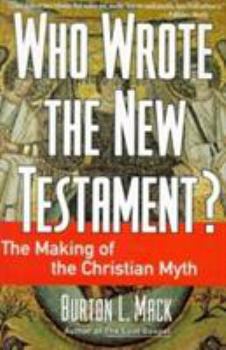Who Wrote the New Testament?
Select Format
Select Condition 
Book Overview
The Making of the Christian Myth
Commencing in mid February 2004, SBS TV (Australia) will run a two-part documentary based on this title.
In this groundbreaking and controversial book, Burton Mack brilliantly exposes how the Gospels are fictional mythologies created by different communities for various purposes and are only distantly related to the actual historical Jesus.
Mack's innovative scholarship which boldly challenges traditional Christian understanding' will change the way you approach the New Testament and think about how Christianity arose.
The clarity of Mack's prose and the intelligent pursuit of his subject make compelling reading. Mack's investigation of the various groups and strands of the early Christian community out of which were generated the texts of Christianity's first anthology of religious literature and makes sense of a topic that has been confusing.






